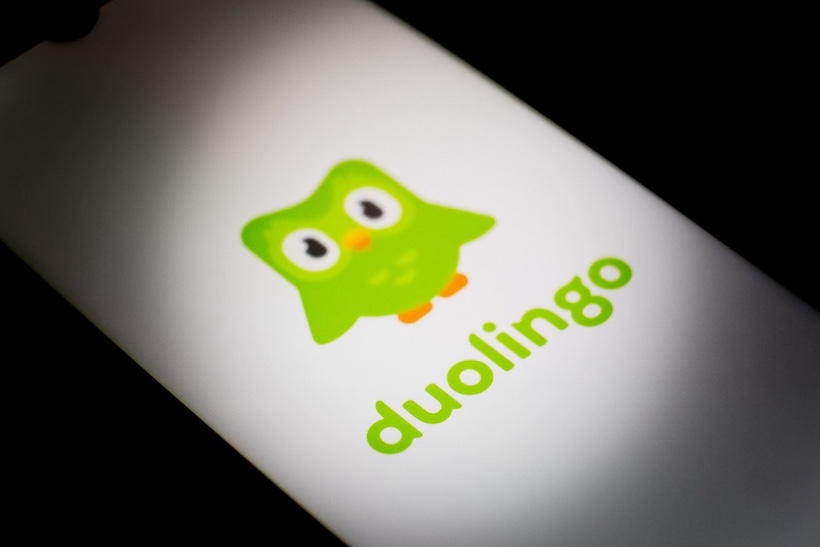Duolingo's AI Replacement Of Contract Workers: What It Means For The Future

Table of Contents
The Business Case for AI-Driven Content Creation in Language Learning
Duolingo's decision to leverage AI for content creation is driven primarily by economic considerations and a need for scalability.
Cost Reduction and Efficiency Gains
The financial advantages are clear. Replacing human contractors with AI offers substantial savings:
- Reduced labor costs: AI doesn't require salaries, benefits, or paid time off, leading to significant cost reductions.
- Faster content creation turnaround times: AI can generate content much faster than humans, allowing for quicker updates and the addition of new language features.
- Scalability: Expanding into new languages or adapting to evolving user needs becomes significantly easier and cheaper with AI. The speed and efficiency of AI-powered content creation allows Duolingo to rapidly scale its operations.
Maintaining Quality and Consistency
A key concern with AI-driven content is maintaining the high quality users expect. Duolingo will likely address this through:
- Human oversight and quality control: While AI generates the content, human editors will likely review and refine the output, ensuring accuracy and pedagogical soundness.
- AI training on large, high-quality datasets: The more high-quality data the AI is trained on, the better its output will be. This requires significant upfront investment but pays off in improved consistency and accuracy.
- Feedback mechanisms from users: User feedback is crucial. Duolingo can use user reports and ratings to identify and correct errors or inconsistencies, constantly improving the AI's performance.
The Impact on Contract Workers and the Gig Economy
The shift to AI has undeniable consequences for the contract workers previously employed by Duolingo.
Job Displacement and its Consequences
The replacement of human workers with AI inevitably leads to job losses:
- Impact on individual livelihoods: For those whose income depended on these contracts, the loss of work can have significant financial and emotional repercussions.
- Potential need for retraining and upskilling: Displaced workers may require support and resources to acquire new skills and find alternative employment in a rapidly changing job market. This emphasizes the need for government and industry collaboration in workforce retraining initiatives.
- The broader implications for the gig economy: Duolingo's actions highlight a broader trend of AI-driven automation potentially impacting various sectors of the gig economy, prompting serious discussions about economic security and social safety nets.
Ethical Considerations of AI-Driven Workforce Replacement
Duolingo's decision raises several important ethical questions:
- Fairness and transparency in decision-making: The process of selecting which roles to automate should be transparent and fair, with clear communication to affected workers.
- The responsibility of companies towards displaced workers: Companies implementing AI-driven workforce reductions have a responsibility to support their displaced employees through retraining, severance packages, or other forms of assistance.
- The need for societal adaptation to AI-driven changes in the workplace: This situation necessitates broader societal discussions on the ethical implications of AI in the workplace and the development of policies that mitigate the negative effects of automation on workers.
The Future of Language Learning in an AI-Powered World
The integration of AI will significantly reshape the language learning landscape.
Personalized Learning Experiences
AI offers immense potential to personalize the learning experience:
- Tailored learning paths based on individual needs: AI can adapt to each learner's pace, strengths, and weaknesses, creating customized learning journeys.
- Adaptive difficulty levels: The AI can adjust the difficulty of exercises in real-time, ensuring learners are always challenged but not overwhelmed.
- Enhanced feedback and progress tracking: AI can provide immediate and detailed feedback, helping learners identify areas for improvement and track their progress effectively.
The Role of Human Educators in the AI Era
Despite the advancements in AI, the role of human educators remains vital:
- Providing personalized support and guidance: While AI can deliver instruction, human educators can provide personalized support, address individual learning challenges, and offer emotional encouragement.
- Addressing complex learning challenges: AI might struggle with nuanced aspects of language acquisition, while human educators can provide deeper understanding and tailored solutions.
- Creating a more engaging and human-centered learning environment: The human element is crucial for building rapport with students, fostering motivation, and making the learning process more enjoyable.
The Evolution of the Language Learning Industry
Duolingo's move is indicative of a larger industry trend:
- Increased competition from AI-powered language learning tools: We will likely see more sophisticated AI-powered language learning apps and platforms entering the market.
- New opportunities for innovation and development: AI opens new avenues for innovation in language learning, potentially leading to more effective and engaging learning methods.
- Potential for increased accessibility and affordability: AI-powered tools could make language learning more accessible and affordable for a wider range of learners.
Conclusion
Duolingo's adoption of AI for content creation presents a complex picture. While Duolingo's AI replacement of contract workers offers undeniable cost savings and efficiency gains for the company, it also raises serious ethical concerns regarding job displacement and the future of work in the gig economy. The benefits of personalized learning experiences driven by AI are undeniable, but the human element in education remains irreplaceable. The future of language learning will likely be a hybrid model, effectively blending the strengths of AI and human educators. This requires careful consideration of the ethical implications and a proactive approach to mitigating the potential negative consequences of AI-driven automation.
What does Duolingo's AI replacement of contract workers mean for you? Are you curious about the future of language learning, the evolving role of AI in education, or the impact of AI on the job market? Share your thoughts in the comments below! Let's discuss the implications of Duolingo's AI replacement of contract workers and the broader impact of AI on the future of work.

Featured Posts
-
 Analysis The Economic Fallout Of Federal Funding Cuts In Trump Country
Apr 30, 2025
Analysis The Economic Fallout Of Federal Funding Cuts In Trump Country
Apr 30, 2025 -
 Strategys 555 8 Million Bitcoin Purchase A Comprehensive Analysis
Apr 30, 2025
Strategys 555 8 Million Bitcoin Purchase A Comprehensive Analysis
Apr 30, 2025 -
 Behind The Scenes Ben Afflecks New Movie Shootout With Gillian Anderson
Apr 30, 2025
Behind The Scenes Ben Afflecks New Movie Shootout With Gillian Anderson
Apr 30, 2025 -
 Gangs Of London Mapping The Capitals Criminal Underworld
Apr 30, 2025
Gangs Of London Mapping The Capitals Criminal Underworld
Apr 30, 2025 -
 Claudia Sheinbaum Y Julio Cesar Estrellas Del Boxeo Nacional 2025
Apr 30, 2025
Claudia Sheinbaum Y Julio Cesar Estrellas Del Boxeo Nacional 2025
Apr 30, 2025
